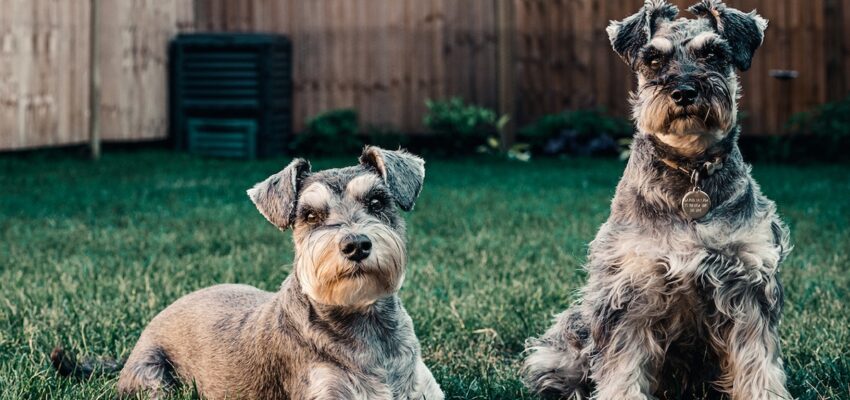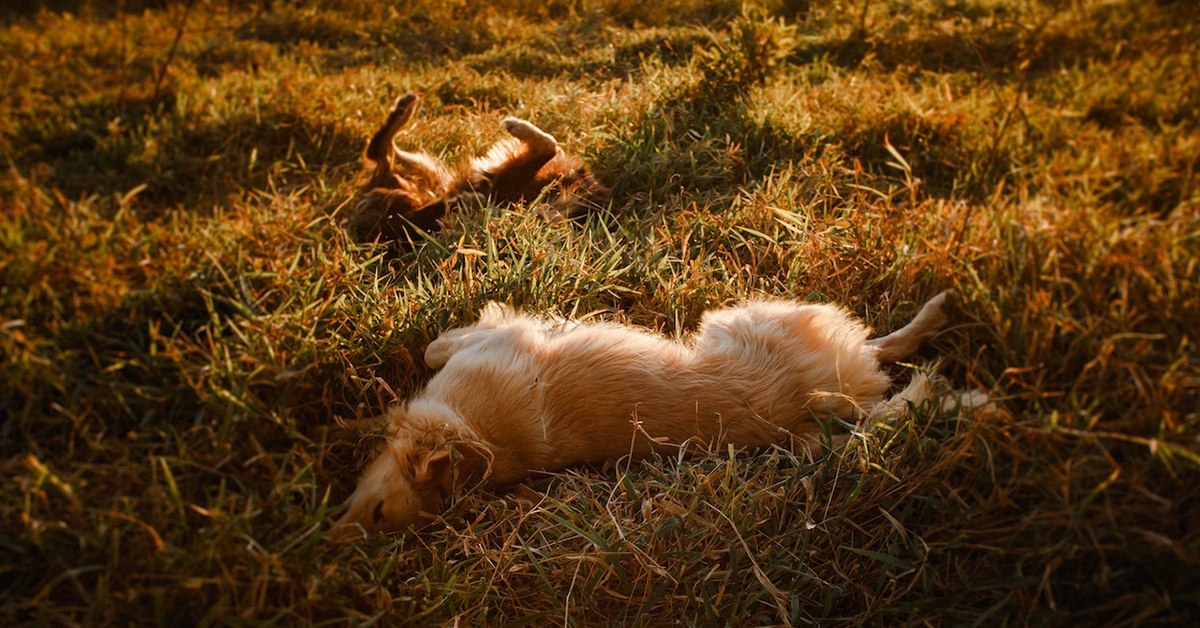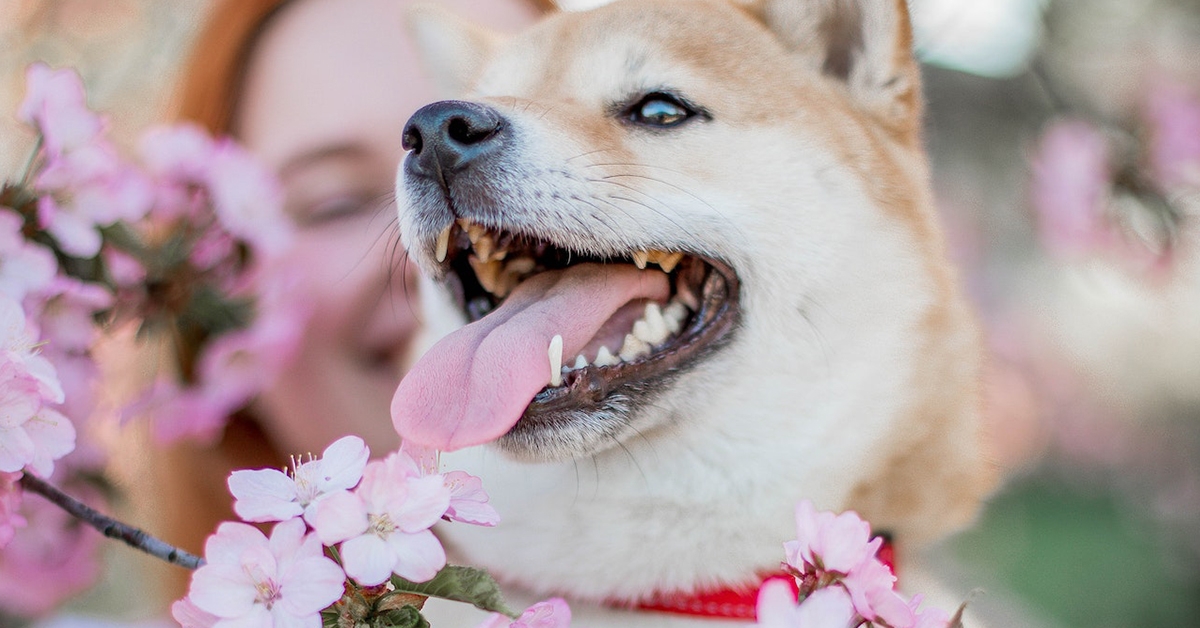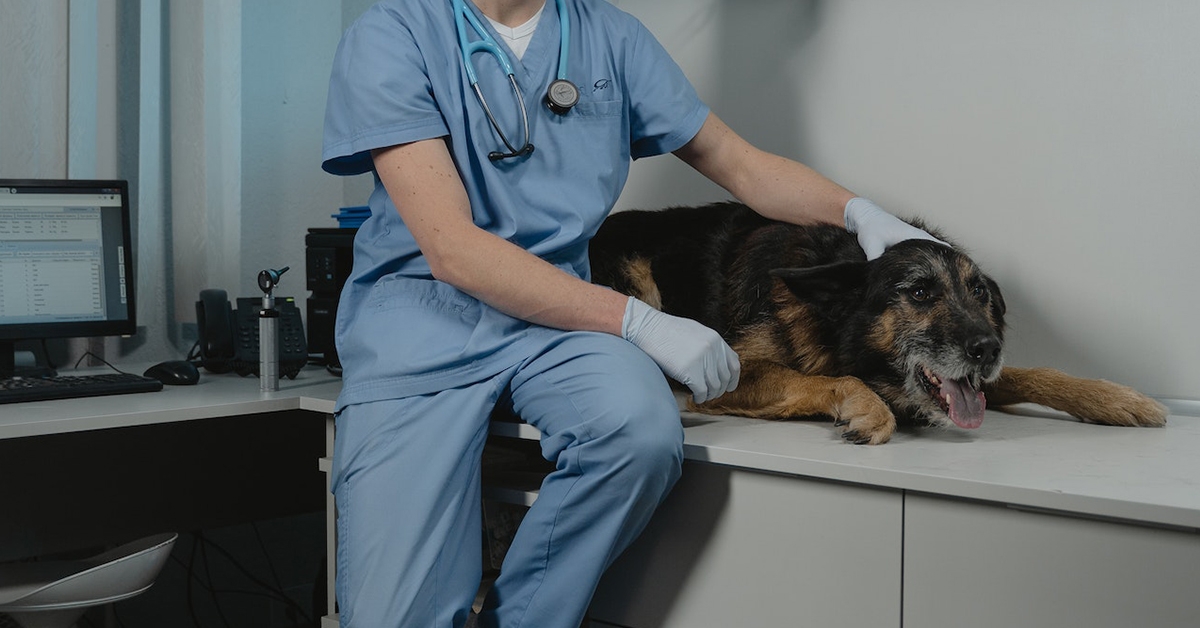
Garden Safety 101: Protecting Your Pets the Easy Way With Jacksonville Insider Advice
Hey there fellow pet lovers! Welcome to our blog where we dive into all things garden safety. We know how much you adore your furry friends, so in this post, we’ll reveal some easy ways to protect your pets while enjoying your outdoor space. And for those unexpected situations, we’ve got you covered with Emergency Vet Jacksonville FL advice. So let’s dive in and make sure your garden is a safe haven for your beloved companions!
Introduction to Garden Safety and Emergency Vet Jacksonville, FL
Introducing garden safety and the valuable services provided by emergency vet Jacksonville, FL! As pet owners, it’s crucial for us to understand that our furry companions may face potential hazards in our gardens. That’s why taking simple precautions can go a long way in protecting their well-being. In this article, we will explore the importance of safeguarding our beloved pets while they enjoy the outdoor spaces. When it comes to garden safety, it’s essential to recognize the risks that can arise from neglecting precautionary measures. To mitigate these risks, our Vets in Jacksonville FL, offers valuable advice on how to protect your pets from common garden hazards. Simple tips such as creating pet-friendly zones, selecting pet-safe plants, and storing garden chemicals properly can make a significant difference in preventing accidents and injuries. By implementing these precautions, we can provide our pets with a secure environment to explore and play in. However, if we suspect that our pet has been poisoned in the garden, it’s crucial to know what actions to take. Contacting our emergency vet in Jacksonville, FL, should be a top priority. They have the expertise and resources to promptly address the situation and provide the necessary treatment to our furry companions. It’s crucial to avoid attempting untrained interventions that could potentially worsen the situation. By partnering with an Jacksonville Veterinary Hospital, we gain access to professional advice and support for ensuring the safety and health of our pets. Their expertise allows us to navigate garden safety with confidence, knowing that we have reliable guidance. Together, we can create an environment where our pets can thrive, explore, and enjoy the great outdoors to the fullest. In conclusion, protecting our pets in the garden is a responsibility we should take seriously. With the valuable advice from our Mobile Vet Jacksonville FL, we can create a safe haven for our furry friends. Let’s embrace garden safety and give our pets the best possible care they deserve.
From toxic plants to sharp tools and garden chemicals, our pets may encounter various dangers if we don’t take the necessary steps to protect them. Understanding these risks is the first step in ensuring our furry friends remain safe and healthy
Why You Need to Protect Your Pets in the Garden

Pets are wonderful companions who bring joy and love into our lives. They are part of our families, and we’ll do anything to keep them safe and healthy. That’s why it’s crucial to protect our pets in the garden. When it comes to garden safety, there are several risks that pet owners need to be aware of. As a pet owner, it is crucial to ensure the safety of your furry friends not only inside your home but also in your garden. Your outdoor space may seem like a safe environment for your pets to explore, but it can potentially harbor hidden hazards that can put their well-being at risk. According to Jacksonville Insider, To protect your pets in the garden, here are some key reasons why you need to take proactive measures:
- Toxic Plants: Certain plants and flowers commonly found in gardens can be poisonous to pets if ingested. For example, lilies, azaleas, daffodils, and tulips can be highly toxic to both cats and dogs. Even some seemingly harmless plants like aloe vera, ivy, or sunflowers can cause adverse reactions in pets. It is crucial to research and identify the plants in your garden to ensure they are pet-friendly and pose no threat to your furry companions.
- Chemicals and Pesticides: Many gardeners use fertilizers, pesticides, and other chemical substances to maintain the health and appearance of their gardens. However, these products can be harmful if consumed or even touched by pets. Always keep your pets away from recently treated areas and opt for pet-safe alternatives when it comes to maintaining your garden.
- Sharp Objects: Gardens often contain various sharp objects such as pruning shears, garden tools, or sharp-edged stones. These items can pose a risk of injury to your pets if they accidentally step on them or attempt to play with them. Make sure to regularly inspect your garden for any potential hazards and promptly remove or secure them.
- Insect Bites and Stings: Gardens attract a wide array of insects, some of which can bite or sting your pets. Bee stings or spider bites, for instance, can cause allergic reactions or even anaphylaxis in pets. Keep an eye out for any signs of discomfort, swelling, or unusual behavior and seek veterinary care if necessary.
- Escaping or Getting Lost: Pets are naturally curious creatures, and an inadequately fenced or secured garden can provide an escape route for them. Ensure that your garden fences are tall and sturdy enough to prevent your pets from jumping over or digging underneath. Additionally, consider using pet-friendly deterrents, such as motion-activated sprinklers, to discourage your pets from trying to wander off.
To create a pet-friendly garden and minimize potential risks, consider implementing the following measures:
- Choose pet-safe plants and avoid toxic ones.
- Store garden chemicals and pesticides in a secure location out of your pets’ reach.
- Store sharp objects and garden tools safely and securely.
- Install secure and sturdy fences to prevent your pets from escaping.
- Regularly inspect your garden for any potential hazards.
- Provide shaded areas and fresh water for your pets to stay hydrated.
- Supervise your pets when they are in the garden, especially if it’s a new environment for them.
Remember, by taking proactive steps to protect your pets in the garden, you can create a safe and enjoyable environment where they can freely explore and play without any harm. According to Race Track Road Animal Hospital, Ensuring their safety in outdoor spaces is just as important as keeping them safe inside your home.
Tips for Protecting Your Pet from Common Garden Hazards

One of the most important aspects of garden safety for pet owners is protecting their furry friends from common garden hazards. From toxic plants to pesticides, there are several potential dangers that can harm pets if proper precautions are not taken. To ensure the well-being of your pets, it is essential to follow some simple tips mentioned by Jacksonville Vet experts.
Creating a safe garden environment for your pets is essential to their well-being. Here are some tips and precautions to protect your pet from common garden hazards:
- Research Pet-safe Plants: Before planting anything in your garden, make sure to identify pet-safe plants and avoid toxic ones. Some common toxic plants include lilies, azaleas, daffodils, and tulips. Opt for pet-friendly alternatives like marigolds, sunflowers, or pet grass.
- Securely Store Chemicals: Keep all garden chemicals, pesticides, and fertilizers in a secure location that is inaccessible to your pet. Pet-proof cabinets or shelving can ensure their safety and prevent accidental ingestion or exposure.
- Watch Out for Mulch: Some types of mulch, like cocoa bean mulch, can be toxic to pets if ingested. Opt for pet-safe mulch alternatives, such as cedar or pine, and make sure your pets don’t consume or play with it.
- Fence and Secure Your Garden: Install secure fencing around your garden to prevent your pet from wandering off or encountering potential dangers outside. Check for any gaps, loose boards, or holes that your pet might be able to squeeze through.
- Use Natural Pest Control Methods: Avoid using chemical-based pesticides and opt for natural pest control methods instead. You can try companion planting, use organic repellents, or introduce beneficial insects that can help control pests without harming your pets.
- Be Aware of Sharp Objects: Regularly check your garden for any sharp objects like garden tools, stakes, or protruding nails. Ensure they are stored safely or removed to prevent injuries to your pet.
- Provide Shade and Water: Create shaded areas in your garden to give your pet a respite from the sun, especially during hot weather. Always have fresh and clean water available for them to stay hydrated.
- Supervise Outdoor Time: When your pet is in the garden, supervise their activities to prevent them from accessing restricted areas or getting into trouble. Keep an eye on them to quickly intervene if needed.
- Consider Pet-friendly Repellents: If you have areas of your garden that you want to keep your pets away from, use pet-friendly repellents. Natural deterrents like citrus peels, vinegar, or certain plants (lavender or rosemary) can help keep pets out of specific areas.
- Regular Vet Check-ups: Schedule regular visits to the veterinarian to keep your pet’s vaccines up-to-date and to address any potential health concerns or issues that might arise from garden-related hazards.
Taking these precautions and implementing safety measures will help ensure that your pets can enjoy the outdoor space without encountering any harm. By creating a pet-friendly garden environment, you can provide a safe and enjoyable space for your furry friends to explore and play.
What to Do If You Suspect a Pet Has Been Poisoned in the Garden

When it comes to keeping your pets safe in the garden, it’s important to be aware of the potential hazards that can arise. One such danger is the risk of your pet coming into contact with poisonous plants or substances. If you suspect that your furry friend has been poisoned in the garden, it’s crucial to take immediate action.
If you suspect that your pet has been poisoned in the garden, it’s important to act quickly as this can be a life-threatening situation. Here are the steps you should take:
- Remove Your Pet from the Area: If you suspect your pet has ingested something toxic, immediately remove them from the garden and bring them to a safe location away from any potential hazards.
- Assess the Symptoms: Observe your pet for any signs of poisoning, which may include vomiting, diarrhea, drooling, difficulty breathing, trembling, weakness, seizures, or changes in behavior. Take note of any specific plants, chemicals, or substances your pet may have come into contact with in the garden.
- Call Your Veterinarian: Contact your veterinarian immediately and describe the situation, including any symptoms or potential toxins. They will provide guidance on the necessary steps to take and may instruct you to induce vomiting if it’s safe and appropriate for the type of toxin ingested.
- Do Not Administer Home Remedies: While you might be tempted to try home remedies or human medications, it’s crucial to follow professional veterinary advice. Some substances toxic to pets can react unpredictably to certain remedies, worsening the situation.
- Gather Information: If possible, gather any packaging, labels, or information related to the product or plant that you suspect caused the poisoning. This can help the veterinarian identify the toxin and determine the best course of treatment.
- Seek Emergency Care if Necessary: Depending on the severity of the symptoms and the substance ingested, your veterinarian may advise you to seek immediate emergency veterinary care. Follow their instructions to ensure your pet receives prompt and appropriate treatment.
- Prevent Future Incidents: After seeking veterinary care, take steps to prevent future incidents. Remove toxic plants from your garden or keep them inaccessible to your pet. Use pet-friendly alternatives for fertilizers, pesticides, and other chemicals. Regularly inspect your garden for potential hazards and remove any sharp objects or toxic substances.
Remember, time is of the essence when dealing with a potential poisoning situation. Promptly contacting your veterinarian can significantly increase the chances of a positive outcome for your pet. Stay vigilant, know the hazards in your garden, and take proactive measures to ensure the safety of your beloved pets.
Make your veterinary practice more visible by adding your business on Jacksonville Insider! Highlight the service, and directly reach pet parents who are in search for a good animal hospital or professional veterinarians in Jacksonville. Don’t let this chance pass by without making use of it so that you can expand your customer base and build long-term relationships with a community that cares about quality veterinary care. Lift your Animal Hospital Jacksonville to the top level!
What Not to Do If You Suspect a Pet Has Been Poisoned in the Garden
If you suspect that your pet has been poisoned in the garden, it’s important to approach the situation with caution and avoid certain actions that could potentially worsen the situation. Here’s a list of what not to do:
- Do Not Delay Seeking Veterinary Care: Time is critical in poisoning cases, and delaying veterinary care can be dangerous. Avoid waiting for symptoms to worsen or hoping that the pet improves on their own. Contact your veterinarian immediately for guidance and follow their instructions.
- Do Not Induce Vomiting Without Veterinary Guidance: While inducing vomiting can be a helpful first-aid measure in some cases, it’s essential to seek guidance from a veterinarian before attempting it. Certain substances or conditions can make induced vomiting inappropriate or even harmful. Always consult a professional before inducing vomiting.
- Do Not Administer Home Remedies or Human Medications: Resist the temptation to administer home remedies or human medications without professional veterinary advice. Many substances toxic to pets can react differently to various remedies and medications. Inappropriate treatments can exacerbate the situation and be potentially harmful.
- Do Not Ignore or Minimize Symptoms: Take any unusual symptoms or behaviors exhibited by your pet seriously. Even if the symptoms seem mild, they could be indicators of poisoning or other underlying health issues. Provide your veterinarian with accurate information about your pet’s condition to help them make an accurate diagnosis.
- Do Not Panic or Engage in Speculation: While it’s natural to feel anxious and concerned for your pet’s well-being, it’s essential to stay calm and avoid speculation. Instead of spending time searching for information online or relying on unverified sources, contact your veterinarian promptly for accurate guidance.
- Do Not Delay Emergency Care if Advised: If your veterinarian instructs you to seek immediate emergency veterinary care based on the severity of the symptoms or suspected toxin, do not delay. Follow their instructions and bring your pet to the nearest emergency veterinary clinic.
- Do Not Neglect Preventive Measures: After dealing with a poisoning incident, take steps to prevent future incidents in your garden. Remove toxic plants, secure chemicals and substances, regularly inspect the garden for potential hazards, and create a safe environment for your pets to prevent similar incidents from occurring.
By avoiding these actions and promptly seeking professional veterinary care, you can increase the chances of a positive outcome for your pet in cases of suspected poisoning. Prioritize their safety and well-being, and work closely with your veterinarian to ensure appropriate diagnosis, treatment, and preventive measures.
The Benefits of Working with an Emergency Vet in Jacksonville, FL
Working with an Jacksonville Pet Hospital can provide several benefits for pet owners. Here are some key advantages of seeking the services of an emergency veterinarian:
- Immediate Care in Emergencies: One of the main benefits of an emergency vet is their availability 24/7, including weekends and holidays. In emergencies, such as accidents, sudden illnesses, or severe injuries, you can rely on an emergency vet to provide immediate care and attention to your pet. They are equipped to handle critical situations promptly, potentially saving your pet’s life.
- Specialized Expertise: Emergency veterinarians have specialized training and experience in dealing with urgent situations. They are equipped to assess and diagnose conditions quickly, enabling them to provide the necessary treatment without delay. Their expertise in emergency medicine ensures that your pet receives timely and appropriate care when time is of the essence.
- Advanced Facilities and Equipment: Emergency veterinary clinics often have advanced diagnostic tools, equipment, and facilities that can aid in fast and accurate diagnoses. This allows for timely treatment and effective management of emergency cases. These facilities may include on-site laboratories, digital X-ray machines, ultrasound equipment, and surgical suites to handle various critical situations.
- Access to Specialists: Emergency vet clinics often have a network of specialists available, or they may have specialized veterinarians on staff. If your pet’s emergency requires the expertise of a specific specialist, an emergency vet can facilitate immediate referral or consultation with the appropriate specialist to ensure comprehensive care for your pet.
- Continuity of Care: In some cases, an emergency situation may require ongoing treatment or follow-up care. Working with an emergency vet ensures continuity of care, as they can communicate with your regular veterinarian, providing them with relevant information and updates. This collaboration ensures a seamless transition and consistent management of your pet’s health.
- Peace of Mind for Pet Owners: Having access to a reliable emergency vet can provide peace of mind for pet owners. Knowing that there is professional assistance available in case of emergencies and critical situations can alleviate anxiety and stress. It allows pet owners to promptly seek assistance when needed, ensuring the best possible outcome for their pets.
- Support During Non-Standard Hours: Regular veterinary clinics typically operate within standard working hours. However, emergencies can happen at any time. Having access to an emergency vet in Jacksonville, FL, ensures that you can receive the necessary care for your pet outside of regular hours, minimizing the impact of emergencies on your pet’s health.
In conclusion, working with an Vet 32225 offers pet owners immediate care, specialized expertise, access to advanced facilities, collaboration with specialists, continuity of care, peace of mind, and support during non-standard hours. Having access to these services can make a significant difference in emergency situations, ensuring the best possible care for your beloved pet.
Conclusion: Stay Safe and Healthy with Professional Advice from Emergency Vet Jacksonville, FL
Staying safe and ensuring the health of your pets should be a top priority when it comes to your garden. By following professional advice from the Emergency Vet Jacksonville, FL, you can create a safe and secure environment for your furry friends to enjoy. From identifying common garden hazards for your pets to taking precautionary measures, such as fencing off toxic plants and using pet-friendly pest control methods, you can greatly minimize the risks associated with garden-related incidents. However, in the unfortunate event that you suspect your pet has been poisoned, it is crucial to act quickly. Reach out to the Vet Clinic Jacksonville, FL for immediate assistance and follow their expert guidance on what steps to take. Avoid attempting home remedies or waiting for the situation to resolve on its own, as this can potentially worsen your pet’s condition. By working closely with the animal hospital Jacksonville, Fl, you can rest assured that your beloved pets are receiving the best possible care in times of emergency. So, stay proactive, follow professional advice, and create a safe garden environment for your pets to thrive. Your furry companions will thank you for it!
In conclusion, it is crucial to prioritize garden safety for our beloved pets. By taking simple precautions, such as applying pet-friendly fertilizers and pesticides, securing dangerous plants, and monitoring our pets closely in the garden, we can prevent a multitude of risks. Neglecting garden safety can lead to severe consequences for our pets, including poisoning and other health emergencies. If you suspect your pet has been poisoned, it is essential to remain calm and seek immediate assistance from an emergency vet in Jacksonville, FL. They have the expertise and resources to provide prompt and effective care, ensuring the well-being of our furry companions. Let’s stay safe and healthy by following the professional advice from an emergency vet in Jacksonville, FL. To discover more invaluable tips and guidance on pet health, be sure to explore our other blog posts. Your pet’s safety and happiness depend on it!
If you are a veterinarian looking to improve your online presence, contact YashaaGlobal, A Veterinary SEO Company in Jacksonville, FL. They are a team of experts who can help you achieve your goals.
